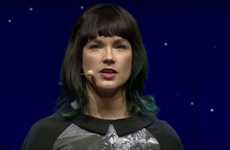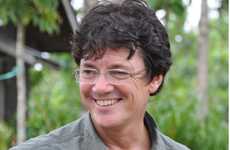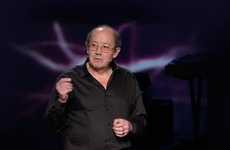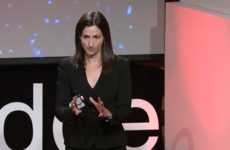
Need Inspiration?
Get inspired by 4,000+ keynote speaker videos & our founder, a top keynote speaker on innovation.
Anjali Tripathi's Planet Discussion Looks at Changes on Earth
Joey Haar — January 24, 2017 — Keynote Trends
In her planet discussion, astrophysicist Anjali Tripathi looks at how our planet is fundamentally changing. Though such a statement might seem trite in light of the frequent plaints about the harms of climate change, Tripathi's planet discussion casts an astronomically larger time frame. Rather than considering the impact of humans, she thinks about the impact of natural changes across eons.
As part of the natural process of planetary aging, Earth's atmosphere loses 400 pounds of hydrogen and 7 pounds of helium every minute. These gases escape into space, never to return to earth. To be sure, this is an entirely natural and inevitable process, since the Sun's energy heats up atmospheric gases to the point where they're lighter than the force of gravity.
The atmosphere is essential to life on Earth, protecting species from the direct heat of the Sun's rays and impacts from celestial objects like meteors. Once Earth's atmosphere is sufficiently thin, Tripathi and other scientists predict that the Earth will look like Mars.
As part of the natural process of planetary aging, Earth's atmosphere loses 400 pounds of hydrogen and 7 pounds of helium every minute. These gases escape into space, never to return to earth. To be sure, this is an entirely natural and inevitable process, since the Sun's energy heats up atmospheric gases to the point where they're lighter than the force of gravity.
The atmosphere is essential to life on Earth, protecting species from the direct heat of the Sun's rays and impacts from celestial objects like meteors. Once Earth's atmosphere is sufficiently thin, Tripathi and other scientists predict that the Earth will look like Mars.
5.3
Score
Popularity
Activity
Freshness
















